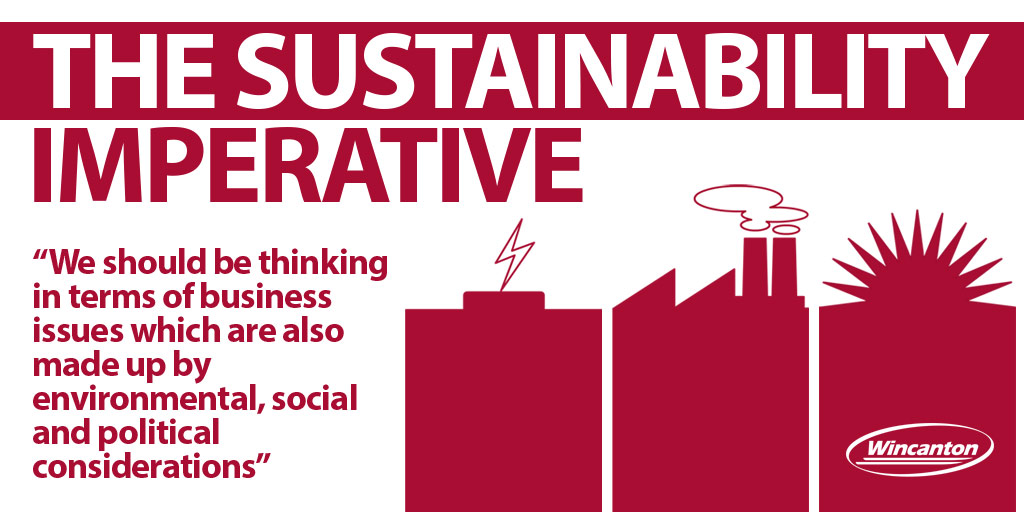
Our Head of CSR, Steve Tainton, looks at why businesses should come together to address the matter, and the benefits of doing so.
Operating sustainably is no longer optional for UK industry.
For some time, businesses have viewed sustainable actions as add-ons; small-scale initiatives that would either generate positive PR, or minor improvements on margins. But over the course of the past few years, the scales have moved - sustainability has moved up the agenda.
From the ‘take-make-waste’ economy of the 19th century, we’re now heading towards the circular economy. In the circular economy, nothing is wasted; it’s instead recirculated. Products and resources are used, recovered and restored, before becoming fresh inputs once again.
This approach is good for all supply chains, making it good for all businesses. Instead of sustainability being viewed as having a negative impact on the bottom line, putting it at the heart of decision-making means it can be seen as intrinsic to adding value. As we discuss in Transforming Logistics: A Leader’s Guide, if it doesn’t make commercial sense, it’s not truly sustainable.
But to make this the norm, businesses must come together to approach issues collaboratively. By sharing the responsibility we all have, we can build solutions and operations that make lasting impacts.

Shared problems + shared solutions = good for everyone
Within logistics, collaborative working can be the driving force for change. For example, think about warehousing space. FMCGs, industrial businesses, supermarkets; every type of business experiences different peaks in demand. While one is operating at close to, or even above, their regular capacity, another will be at the other end of the spectrum. By sharing what they have – in this case, storage space – they can optimise resources, with mutual benefits. So, instead of purchasing larger facilities than they need, or even additional properties, businesses can come together to reduce the electricity they need to power machinery and heat buildings, as well as reducing the environmental impact of physically building these locations. Platforms like oneVASTwarehouse.comhave grown to facilitate this, working as a marketplace to link those that need storage space with those that have underutilised capacity.
A natural leap from this is to share transportation needs. By consolidating loads, not necessarily with competitors, miles on the road can reduced; which is especially effective for urban deliveries and journeys into low emission zones.
Scaling up
Of course, there are options beyond the everyday for logistics businesses to collaborate around sustainability. Thinking large scale, warehouses are solar power-generating machines in waiting. With large surface areas, effective PV (photovoltaic) panelling can transform a dormant resource into a technology investment that generates huge savings on energy bills.
But, the investment needed is significant, especially for businesses that may only be operating facilities for the duration of one contract. The option of TUPE the remainder of these costs to the next occupier makes environmental, as well as business sense for both parties.
Collaboration could extend away from the warehouse to the road too. For example, a problem around the wide scale implementation of electric vehicles is the infrastructure needed to support them. Businesses operating in close proximity could work together to either establish shared charging points, or even arrange for pre-charged batteries to be delivered to their sites ready to plug into vehicles.
Cost to business vs. cost to the environment
For long periods of time, sustainability has been viewed as an inconvenience in a business sense. It’s often been associated with added cost, effort and time; all of which eat away at profits.
But, being sustainable can present opportunities. Through embracing collaboration and the circular economy, we can secure the future of our businesses, society and the natural world, without compromising the bottom line.

